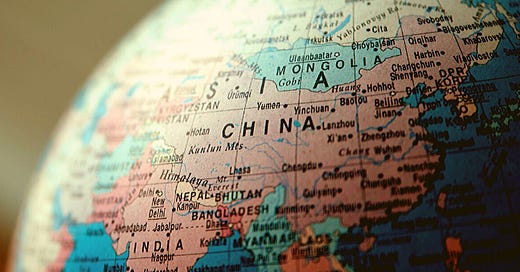Earlier this week, economic data released from the Commerce and Agriculture Department revealed that U.S. consumers and businesses paid a whopping $7.1 billion in tariffs in the month of September alone. This set a new record, and it was largely due to President Trump’s continuing trade war with China.
Though the president continues to falsely insist that the tax revenue brought in from U.S. tariffs (over the past 20 months) has come from China, just about everyone understands by now that its Americans who’ve been flipping the bill all along. And that bill, since the beginning of the trade war, now sits as an estimated $38 billion.
But that's only part of the story. Americans have been burdened by Trump's trade escapades in ways that go well beyond taxation and rising consumer prices.
Retaliatory tariffs from China have closed off enough export markets to U.S. farmers that Trump has had to direct close to $30 billion in taxpayer-funded bailouts their way to help make up for just some of their losses. For some perspective, that amount is more than twice the $12 billion President Obama paid out to U.S. automakers in 2009 during the financial crisis — the intrusive government action that arguably spawned the Tea Party Movement.
In fact, almost 40% of the projected U.S. farm profits for 2019 will come from some form of trade aid. This includes government bailouts, government disaster funds, and insurance payments, and it equates to roughly $33 billion of $88 billion in income. At the same time, farm bankruptcies are at their highest level since 2011.
U.S. manufacturers have been taking it on the chin as well. Their sector has suffered through a recession (in an otherwise strong U.S. economy) for most of the year. The reason? Trump’s tariffs have made Chinese goods and parts (which are hard to find and afford elsewhere) increasingly expensive.
Additionally, the U.S. steel industry, which was supposed to be saved by Trump’s trade war (according to the president anyway), has actually incurred even tougher losses because of it.
As Don Lee of the Los Angeles Times reported last month, Trump’s tariffs in 2018 (along with the strengthening economy) initially got U.S. steel manufacturers pretty excited. So much so that many companies announced expansion plans and re-invested heavily to meet a perceived surge in the demand for U.S. steel.
Only, that surge never came.
Trump’s “on-again, off-again trade warfare,” as Lee puts it, “contributed to a general slowdown of the global economy” and a decline in foreign demand for U.S. goods.
Combined with overproduction in China, steel prices have fallen well below where they were at before Trump’s tariffs. To deal with the downturn, the U.S. steel industry has had to cut back on production, close mills, and send scores of steel workers home. Like the rest of the U.S. manufacturing sector, the steel industry is in recession.
So… Is there any good news on the horizon, in regard to the trade war with China? The numbers sure don’t suggest any, at least not here in the U.S. The Chinese economy has definitely taken a hit, and that’s no small thing from a leveraging perspective, but the situation has yet to improve our country’s trade woes.
Still, President Trump got some people pretty excited last month when he announced that he had achieved a “trade deal” with China. But the details of that preliminary deal (which won’t be further discussed until next month at the earliest) were pretty underwhelming. The “deal” was essentially a cease-fire on new tariffs (which will certainly grant some temporary relief to both sides), and China pledging to purchase U.S. agricultural products in the amount of $40-50 billion.
Unfortunately, a pledge isn’t worth a whole lot, especially when it comes from the Chinese government. And even if China does follow through with that purchase (and that’s a huge “if”), the amount falls well short of the over $60 billion U.S. farmers have lost as a result of the trade war.
Coming up on two years since President Trump assured us all that “trade wars are good, and easy to win,” we have next to nothing to show for this marathon-length, ill-advised venture…other than a lot of unnecessary economic burdens and hardships for Americans who should be enjoying the strength of the broader U.S. economy.
It’s amazing that the president’s loyal base still finds ways to romanticize this exercise in self-mutilation. Trump even receives big cheers when he brags at rallies about using our billions to bail out the farms that he, himself, has hurt. Ironically, a lot of those rally attendees are former Tea Partiers who loudly excoriated Obama's bailouts, and now scream "socialism!" whenever Elizabeth Warren and Bernie Sanders promote similar methods of government intervention in the free market.
But unfortunately, that's where we're at in today's politics. And if this tentative deal with China strikes out (a deal that Trump insists is the only deterrent to tariffs being placed on nearly all Chinese imports), don't expect the strength of the Trump economy to continue making up for the losses.
—





